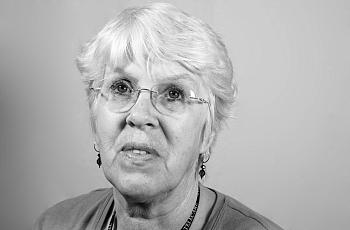
Jocelyn Wiener
Health and mental health reporter

Health and mental health reporter
Jocelyn Wiener writes about health and mental health for CalMatters, exploring the intersection between government policies and people’s lives. She has worked as a reporter in her native California for close to two decades. Her work has appeared in The Atlantic, The Washington Post, the Christian Science Monitor, Kaiser Health News, the San Francisco Chronicle and many other state and national publications. After graduating from Stanford University, she received a Fulbright Scholarship to spend a year and a half working with young people living on the streets of El Salvador. She earned a master’s degree at Columbia University’s School of Journalism, and reported on poverty and homelessness for The Sacramento Bee. She has been both a Center for Health Journalism California and Data Fellow.
I am a freelance reporter with a focus on health and mental health care and other social issues. I regularly report for the CHCF Center for Health Reporting, a non-profit journalism organization based in Los Angeles that puts together in-depth stories on health care issues in California. These projects run in newspapers and on radio stations around the state.

California has problems serving young children with disabilities. Reporter Jocelyn Wiener explains how she tracked down the story.

California's program to help infants and toddlers with developmental delays isn't getting crucial services to kids on time. "It’s been a total nightmare," one parent said.

When it comes to ensuring children receive key developmental screenings, California is doing a terrible job, according to data and expert interviews.

Why are so many young children in California not being screened for developmental issues, despite clear guidelines that they should be?

Last year, I started looking for a compelling story about children’s mental health in California that was grounded in solid numbers. I made lots of phone calls and had lots of meetings. Sources were sympathetic. They, too, would love to quantify problems with mental health services.

Why does mental health seem to get hit so much harder by cuts than other arenas? What do these cuts look like on the ground?

<p>When I first pitched a series of stories exploring access to mental health care in the wake of state budget cuts, I expected to encounter some difficulty finding subjects.</p><p> </p><p> </p>

<p>Stanislaus was one of the first counties in California to submit a plan for funding from the Mental Health Services Act, the voter-supported tax on millionaires to expand the state’s mental health services.</p>

<p>As mental health budgets shrink and services erode in Stanislaus County California, Aspen Family Medical Group, a primary care clinic, has taken on a key role in treating the county's uninsured mentally ill.</p>

<p>Deputy David Frost, who oversees a California county jail’s two mental health wings, said it’s not uncommon for seriously ill inmates to wait there for months, even after a judge orders them transferred to a state hospital.</p>